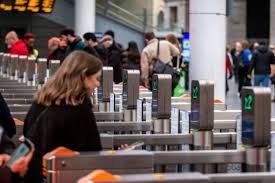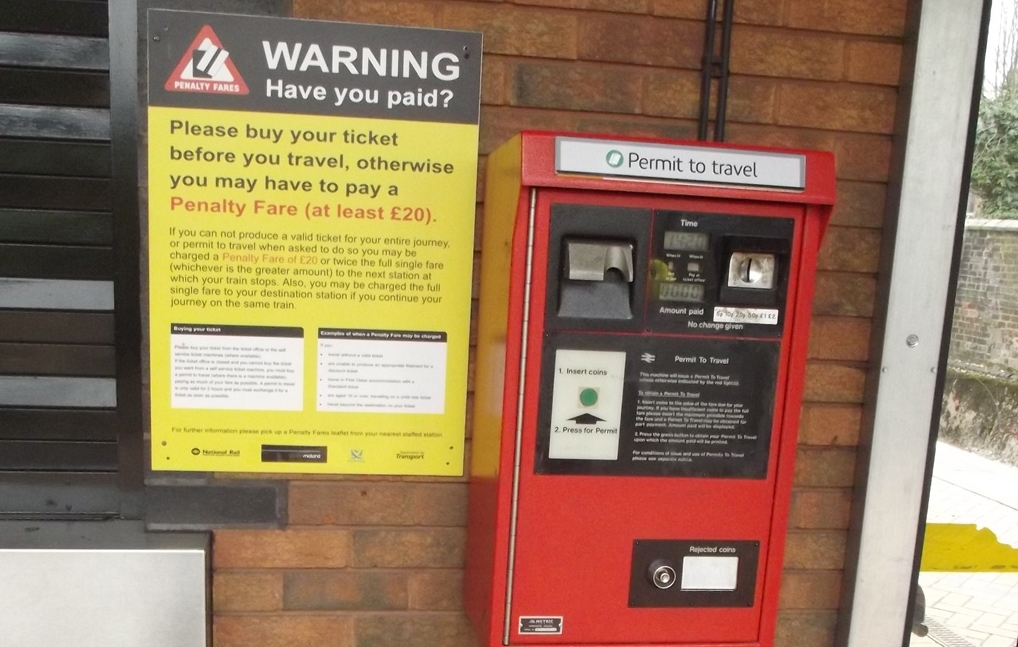How to Successfully Challenge a Penalty Fare Notice
Receiving a penalty fare notice can be an unsettling experience. Whether you were rushing to catch a train, inadvertently used the wrong ticket, or simply forgot to tap your contactless card, you now face the prospect of paying a fine, or risking further consequences if you fail to act. This comprehensive guide will walk you through crafting an effective appeal letter to contest unfair penalty fares.
A well-crafted, persuasive letter can make a significant difference in whether your penalty fare is reduced, waived, or upheld. As a veteran solicitor who has seen countless penalty fare disputes play out, I understand that clear communication, solid evidence, and proper adherence to deadlines can tip the scales in your favour. This guide will take you through the essential steps to craft an effective appeal letter, from gathering evidence to structuring your argument, and explain why seeking professional help might be advantageous in more complex cases.
1. Know Your Rights and Responsibilities
Check the Relevant Regulations
Before putting pen to paper, take time to familiarise yourself with the rules and regulations that govern penalty fares. In the UK, these may fall under the Railway Byelaws, the Regulation of Railways Act 1889, or local transport rules. Understanding the framework can help you tailor your argument to the correct legal context.
Review the Notice
Every penalty fare notice should detail why you've been penalised, the amount you're required to pay, and the deadlines for either paying or appealing. Note any errors, such as incorrect journey details or times, as these might strengthen your case if you can show the notice was erroneously issued.
Adhere to Appeal Deadlines
Penalty fare notices typically have a strict window for appeals, often 21 days. Submitting your challenge after this period can severely undermine your case or even lead to automatic rejection. Make sure you mark the deadline in your calendar and aim to post or email your letter well before it expires.
2. Gather Compelling Evidence
Types of Evidence
A well-evidenced challenge letter is far more compelling than a simple statement of "I didn't do it." Depending on your situation, consider including:
Ticket Stubs or Purchase Receipts
If you genuinely bought the correct ticket or pass, attach photos or scans of it. Online confirmations or email receipts can also demonstrate your attempt to pay.
Bank Statements
These can show you had sufficient funds or that a transaction for the fare was made, helping to prove you had no intention of avoiding payment.
Photographs or Video
If a ticket machine was out of order, or a station sign was unclear, providing visual evidence can strengthen your argument that the issue was beyond your control.
Witness Statements
If a friend or colleague witnessed the situation and can verify your account, a short note from them might help corroborate your version of events.
Relevance and Clarity
When organising evidence, think about clarity. Excessive or irrelevant documents can dilute your main points, so only include the materials that directly support your argument. Label or reference each piece clearly within your letter to guide the reader through your evidence.
3. Plan the Structure of Your Letter
Keep It Organised
A well-structured letter is easier to read and more likely to convince the penalty appeals team. Consider using the following framework:
- Introduction: State who you are, the penalty fare reference number, and why you're writing (i.e., to challenge the fare).
- Background: Briefly explain the context of your journey, what ticket you believed you had or intended to buy, and any relevant details of how or where you were stopped.
- Evidence: Introduce and summarise each piece of evidence you're presenting. If you attach photos, numbered exhibits, or statements, refer to them clearly here.
- Argument: Outline why you believe the penalty fare should be cancelled or reduced (e.g., machine faults, honest mistakes, staff errors).
- Conclusion and Request: Politely request a thorough review of your case and state the outcome you'd like, such as cancellation or a reduction of the penalty.
Tone and Language
Aim for a calm, polite, and objective tone. Aggressive or accusatory language can alienate the person reviewing your case. Instead, maintain a respectful demeanour, even if you feel frustrated. Presenting your case methodically and courteously often yields better results.
4. Crafting a Strong Argument
Demonstrate Good Faith
A critical aspect of persuading the appeals team is showing that you intended to pay the correct fare. You might highlight:
- Honest Attempts: If you tried to buy a ticket but faced operational issues (e.g., card machine errors).
- Previous Good Conduct: For long-term commuters, emphasise that you have consistently paid for your travel without incident.
- Willingness to Rectify: If there's a legitimate misunderstanding, state you are willing to pay any outstanding fare difference to rectify the mistake.
Emphasise Key Points
Use concise, targeted language. Rather than copying entire sections of legislation, focus on the specific points that apply to your situation. If a particular byelaw states an offence occurs only if you fail to provide a valid ticket "at the time of travel," and you have a receipt purchased before boarding, highlight this clearly.
Address Potential Counterarguments
If you suspect the operator might reject your claim (for instance, if you tapped in at the wrong station), acknowledge the possible confusion but explain how it arose. Pre-empting their objections shows you've considered multiple angles and bolsters your credibility.
5. Finishing Touches and Submission
Proofread Thoroughly
Spelling, grammar, and clarity can all affect how your letter is perceived. Take time to proofread and consider having a friend or family member review it as well. A polished letter conveys seriousness, which can help your case stand out among the many appeals an operator receives.
Send via Recorded Delivery (If Posted)
If you opt to send the letter by post, choose recorded or signed-for delivery. This method provides confirmation that your letter arrived before the deadline, preventing any disputes about timing.
Keep a Copy
File both a digital and a physical copy of your letter and evidence. Should the operator claim non-receipt or if you need to escalate the matter, you'll want easy access to everything you submitted.
6. When and Why to Seek Professional Advice
Complex Cases
Some appeals are more complicated than others, for example if:
- You're accused of repeated fare evasion.
- The penalty is exceptionally high.
- Your job or visa status could be jeopardised by a potential criminal record.
In these scenarios, it might be wise to consult a solicitor who specialises in fare evasion or transport law. They can craft or refine your letter to ensure it addresses any legal nuances and represent you if the matter moves toward prosecution.
Out-of-Court Settlements
In cases where the operator claims you owe a substantial amount, or if they allege you've deliberately evaded fares multiple times, a solicitor could negotiate an out-of-court settlement. While these negotiations might come at a cost, they can help you avoid the stress and long-term implications of a criminal record.
7. What to Expect After Submitting Your Letter
Timelines and Responses
Transport operators differ in how quickly they process appeals. Some respond within a few weeks, while others may take longer. If you haven't heard back by their stated timeframe, follow up politely by phone or email. Keep copies of all communications.
Potential Outcomes
Once your appeal is reviewed, the operator may:
- Cancel the Penalty: If they agree you've proven your case.
- Reduce the Penalty: They might accept partial fault or your mitigating circumstances.
- Uphold the Original Charge: If they believe there is insufficient evidence or if they remain unconvinced.
- Request Additional Information: In some instances, the operator may ask for more details before making a decision.
Next Steps if Denied
If your appeal is rejected and you still believe the fare was unfairly applied, double-check whether there is a second stage of appeal (some operators provide an independent adjudication process). Alternatively, you may decide to pay the penalty or seek legal guidance if you feel strongly that you've been wrongly accused.
Conclusion: Mastering the Art of Challenging Your Penalty Fare for a Successful Outcome
Receiving a penalty fare in the UK can be stressful, but crafting a persuasive, well-structured appeal letter offers a genuine chance to have your penalty reduced or withdrawn altogether. By gathering strong evidence, organising your argument clearly, and maintaining a calm, respectful tone, you stand a far better chance of convincing the operator that you were charged in error, or that mitigating circumstances should apply. Should your situation be more complex or the penalty especially severe, seeking advice from an experienced solicitor can be invaluable, both for drafting the letter and handling any subsequent legal challenges.
Ultimately, it's about presenting a coherent case supported by evidence that reflects your good faith and genuine belief that the penalty is unwarranted. With the right approach and a thorough understanding of your rights, you can significantly increase your odds of a successful outcome when challenging a penalty fare.



